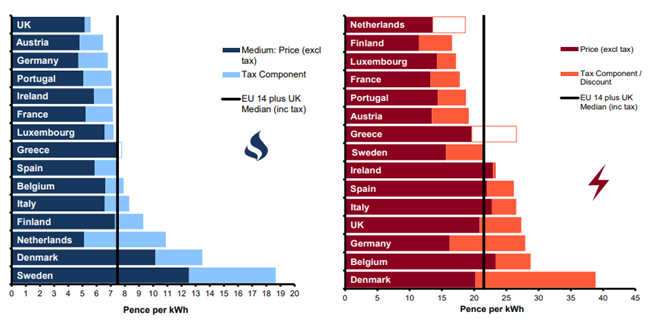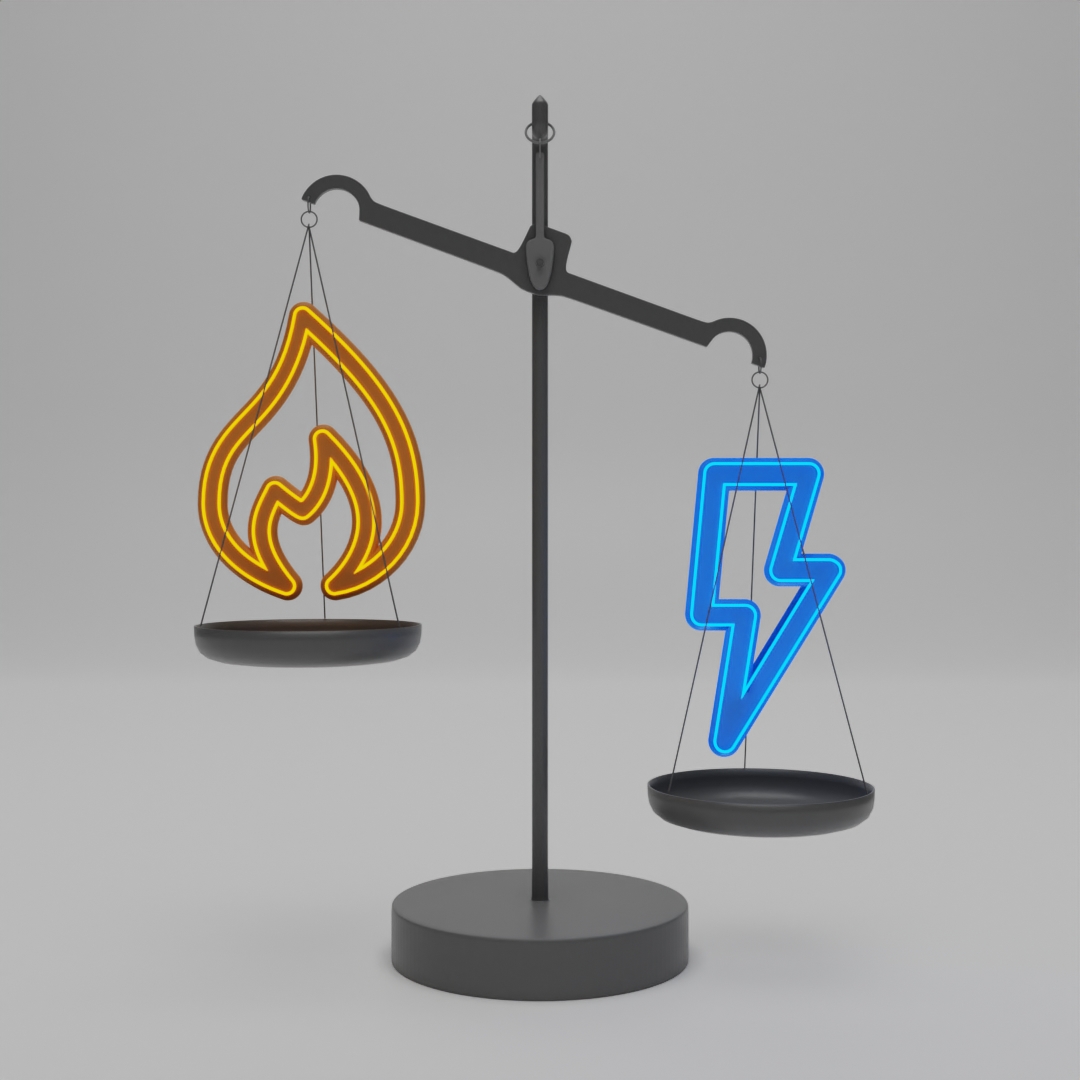Fiscal Background prevents heat decarbonisation in the UK
The average prices in the principal European nations of gas in blue and electricity in red are shown in these graphs published by BEIS for January to June 2022.

UK domestic consumers enjoy the lowest gas prices in Europe – because the UK imposes almost no tax on gas.
UK domestic consumers suffer one of the highest electricity prices in Europe – because of the high UK tax on electricity.
The lighter shade at the right of the prices above shows the taxes and environmental levies included in the prices in each country.
The Fiscal Background in the UK hinders decarbonisation of heating
If the Government is serious about reducing carbon emissions from heating in the UK it is clear that the fiscal background in the UK must change: burning of gas for heating releases carbon emissions (and also releases NO2 emissions which contribute to health hazards from respiratory diseases). The heat transferred into buildings by heat pumps releases no on-site CO2 (and zero on-site NO2).
Sweden is encouraging the decarbonisation of heating
Sweden adopts the opposite approach to the UK with high taxes on gas to discourage burning. For this reason nearly all new heating installations in Sweden rely on heat pumps. Nearly all new and replacement heating installations in the UK are based on burning gas or oil.
Spark Gap
The price of electricity in the UK is around 27 pence a kWh. The price of gas less than 6 pence a kWh.
The price of electricity in the Sweden is 22 pence a kWh. The price of gas is 19 pence a kWh.
The sales of heat pumps in Sweden are 35 times higher than in the UK per head of population.
Most of the heat pump installers in the UK are SMEs. They had little benefit from the RHI which was not successful in encouraging the uptake of heat pumps due to the fiscal background in the UK.
Fifth Carbon Budget
To achieve the Fifth Carbon Budget there is an urgent need to increase the number of heat pump installations from around 30,000 a year to 600,000 a year, starting now.
It is important to remember that an investment in a heat pump system by an individual, or a private sector company, is a private investment (of cash) for a public benefit (of lower carbon emissions for everyone).
Private investment in heat pumps is currently held back by Government's fiscal background. It is time to change this to allow the decarbonisation of heat to move forward.
Whitehall could achieve significant carbon emissions reductions and boost UK employment if it was prepared to encourage the SMEs that are ready to install heat pumps. A bonus would be a reduction in NO2 emissions – which have been a significant health risk for respiratory diseases like Coronavirus.
See Renewable Heating See Renewable Cooling
References:

